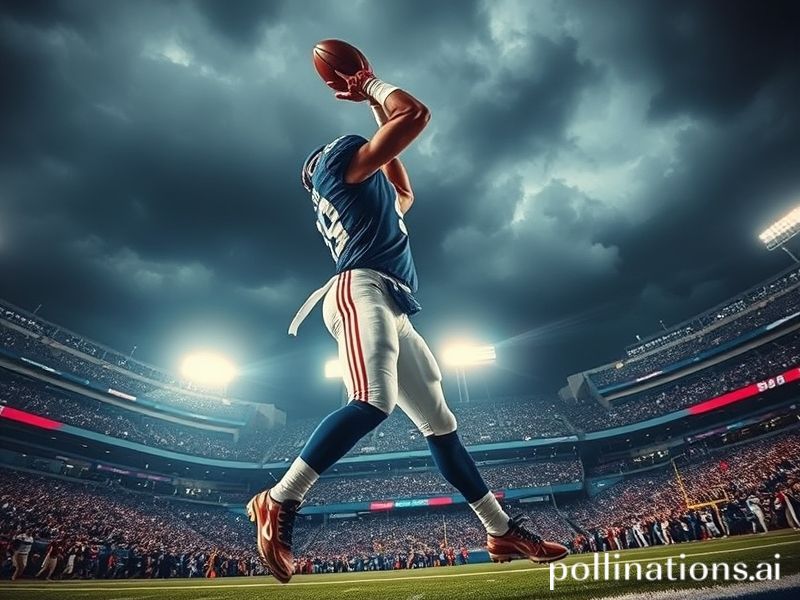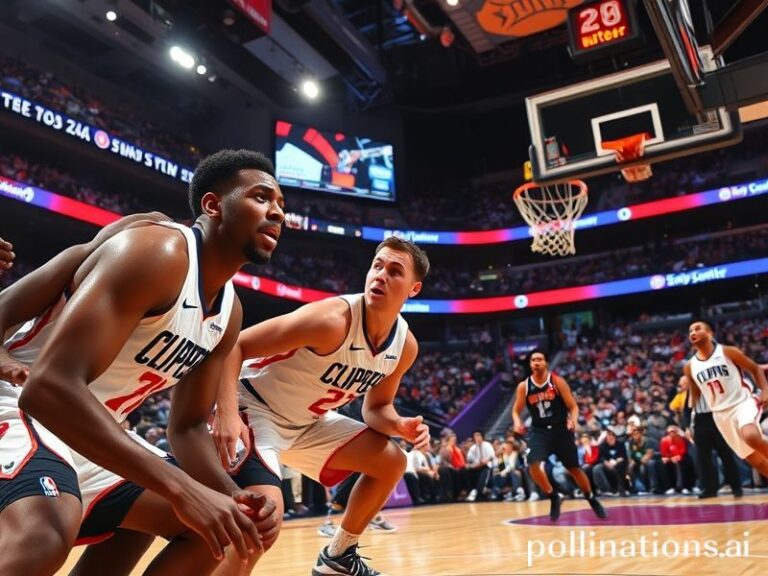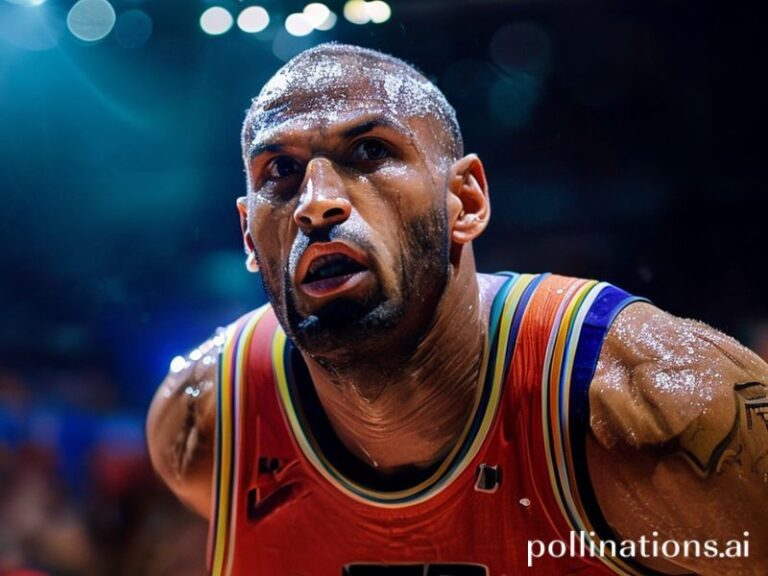Global Showdown: What Giants vs Chiefs Really Tells the Rest of the World
Giants vs. Chiefs: The World Watches Two Mediocre Powers Trade Body Blows
By our jaded foreign correspondent, still waiting for the apocalypse to RSVP
GENEVA—In the grand coliseum of global affairs, where nuclear codes are swapped like Pokémon cards and trade wars are fought with the gusto of a Black Friday stampede, this week’s marquee undercard features the plucky New York Giants versus the reigning, ever-smug Kansas City Chiefs. To the untrained eye it’s merely American football—an oval ball, twenty-two padded millionaires, and enough concussions to keep neurology journals in business for decades. Yet from my perch in a neutral country that hasn’t won a war (or a Super Bowl) since 1386, the tilt looks less like sport and more like a Rorschach test for a planet that can’t decide whether to laugh, cry, or invest in canned goods.
Let’s zoom out, shall we? While the Giants’ offensive line resembles a NATO summit—lots of handshakes, little protection—the Chiefs’ Patrick Mahomes slings spirals with the casual arrogance of a central banker printing currency. The metaphor writes itself: one side clings to legacy and nostalgia (Brexit, anyone?), the other to explosive, tech-driven asymmetry (Silicon Valley, but with tighter pants). Viewed from the cheap seats of the international press box, the game is a tidy illustration of how the 21st century operates: legacy powers wheeze, disruptors cash in, and the rest of us place prop bets on which blocs collapse first.
Gambling, of course, is the universal language. From Lagos barbershops to Manila cyber-cafes, offshore apps glow with the same question: will the Giants cover +9.5 or will the Chiefs embarrass them like a Facebook privacy promise? The wagers are placed in Bitcoin, naira, yuan, or the ever-optimistic Argentine peso—currencies that all share the same trajectory as a Daniel Jones fourth-quarter pass: brief hang-time, inevitable descent. When the house always wins, the house might as well be the International Monetary Fund.
But the real action is in the ancillary carnage. American broadcasters will burn through 3.4 million megawatts of electricity powering graphics that explain nothing, an output roughly equal to Ghana’s March consumption. Meanwhile, Kansas City’s famously saucy ribs will be shipped globally via express cargo planes, ensuring that a Stockholm foodie can Instagram heartburn in real time. Somewhere in the South Pacific, a container vessel registers the carbon footprint of a small war, but relax—the league bought “offsets,” a term that translates to “plant three trees, set one on fire, call it even.”
And then there are the commercials: thirty-second morality plays where soda brands unite the planet, truckmakers promise rugged individualism, and tech giants swear they’re totally not listening through your smart fridge. To viewers in places where clean water is aspirational, the ads look like satire written by an AI trained on American exceptionalism and peyote. The cumulative cost could vaccinate half of Sudan, but hey, that doesn’t move pickup trucks off the lot.
Yet the game’s soft-power payload is undeniable. The NFL now beams to 190 countries, outperforming State Department briefings in both reach and credibility. When a Giants receiver celebrates by striking the “Heisman” pose, teenagers in Jakarta replicate it on TikTok, oblivious to the trophy’s namesake having once flunked his own pro career. Cultural imperialism has never been so aerodynamic.
By the fourth quarter, assuming the Giants haven’t surrendered like a 1990s currency peg, global attention will pivot to the next crisis—probably a celebrity divorce or an unexpected coup, whichever trends higher. The final whistle will be parsed by pundits for “momentum,” a concept economists recognize from every emerging-market recovery plan: fleeting, imaginary, and reversed within a fiscal quarter.
In the end, the Chiefs will likely win, the Giants will moral-victory themselves into next week, and the world will keep spinning—off its axis, perhaps, but spinning nonetheless. For those keeping score at home, the only certainty is that the real giants and chiefs remain in boardrooms and bunkers, trading blows that never make the highlight reel. They don’t need overtime; they’ve got us all on the clock.







